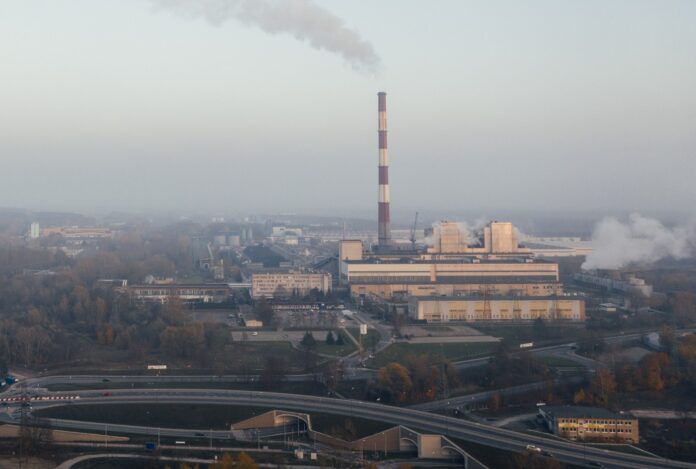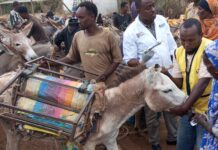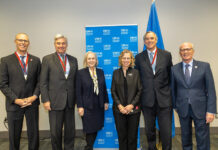By Omboki Monayo
Nairobi, Kenya: A faith-based climate justice initiative is asking for faster universal access to renewable, community-conscious, climate-friendly energy.
Religious leaders, drawn from various religions and allied to Green Faith, which is a faith-based environmental rights organization, have also called on the financiers behind the EACOP oil pipeline to withdraw their investment from the venture.
In a statement read by Sheikh Ibrahim Lithome of the Inter-Religious Council of Kenya, the religious leaders called for a faster and immediate just transition to renewable energy combined with the phasing out of fossil fuel products.
On October 27, 2021, a collection of clerics drawn from several religions including Muslims, Hindus, and several Christian denominations called on Kenya and the East Africa Community to divest from fossil fuel projects.
“There is no justification for allowing new fossil fuel projects in Africa, or East Africa for that matter when the alternative more renewable energy sources have not been exploited. We must insist on proper and sustainable use of Earth’s resources without hurting its occupants,” said Sheikh Lithome.
“This way we will be fulfilling the Earth’s stewardship role, assigned to us by the Creator,” the Sheikh added.
The Sheikh recalled how he struggled with other environmental activists to stop the Lamu coal plant, saying it was a defining moment for environmental activism and vigilance in the region.
“We worked as a team to stop the Lamu Coal plant. The action we took is evidence of what concerted action that aims to protect the community’s welfare can achieve,” said the cleric.
Eacop, whose construction is almost underway, is set to be the world’s longest-heated oil pipeline when completed.
According to the EAC website eacop.com, the pipe is 1,443 kilometers long and runs from Uganda’s Kingfisher and Tingela oilfields in Kabaale, Hoima district to the Chongoleani Peninsula near Tanga Port in Tanzania.
Some 80 percent of the pipeline is in Tanzania.
“It is a buried thermally insulated 24-inch pipeline along with two pumping stations in Uganda and four in Tanzania, ending at Tanga with a Terminal and Jetty. Here, crude oil will be loaded onto tankers,” reads the website.
Most of the oil moved by the pipeline will be sold to offshore clients.
According to Merry Warrah of Green Faith, the EACOP project was yet another sad example of what she termed “the continent’s puzzling willingness to go the other way” as opposed to embracing green energy projects like the Global North.
“It is sad and distressing that the African continent is still allowing the commissioning of fossil fuel projects that are being decommissioned in the Global North. Africa produces only 1.4 percent of the greenhouse emissions but is facing considerable challenges caused by climate change,” said Ms. Warrah.
She alleged that the process of getting the required authorization for the project was steeped in injustice.
“Injustice has been seen right in the project from the licensing of businesses to the continued violation of human rights and the displacement of people. At what point can we say that we are going to sacrifice personal benefit for the sake of political expediency?” she wondered.
Ms. Warrah said the assault and arrest of anti-EACOP protesters carried out two weeks ago by Ugandan police had sent a wrong message on the region’s development agenda.
“University students who protested against the project were intimidated, roughed up, and arrested by state security officials. The EACOP pipeline is supposed to benefit the people of Uganda. If development is beneficial to a country, should it be militarized?” asked the activist and Seventh-Day Adventist believer.
On his part, Muslims for Human Rights Executive Director Omar Elmawi condemned what he termed as “the deliberate misuse of resources on the continent and the planet”.
He also decried the fact that Uganda owns just 15 percent of EACOP, while Total Energy and Sinoc own 70 percent of the venture.
“It is true that Africa wants to develop. But at what cost? EACOP risks tripling the continent’s carbon emissions and leaving the continent dirtier and poorer after the investors have carried away the bulk of the profits,” Mr. Elmawi said.
“These projects are not designed for the good of Africa but to satisfy the greed of the elite who seek to line their pockets at the expense of the planet and communities,” added the human rights advocate.
“If Eacop was a people-friendly project, why should more than 1,000 families be displaced, losing their rich agriculturally productive land in the process?” Mr. Elmawi asked.
Addressing the press briefing in Nairobi, Sheikh Lithome who is a member of the Green Faith board said that the Quran acknowledges mankind as a trustee of God’s creation.
“From the Quran which is divinely inspired and handed down to us through Prophet Muhammad, we acknowledge that we are the creation of Allah, who has placed us as trustees of his creation on earth. Any actions that destroy or pollute the earth are therefore seen as a sin,” said Sheikh Abdulrazaak Malim, who hails from Garissa.
Green Faith members voiced their strong support for the Fossil Fuel Non-Proliferation Treaty (FFNPT) even as the world gears up for the COP27 climate change summit set to be held Sharm El Sheikh, Egypt between November 7-18, 2022.
“Our God-given role of stewardship has been overshadowed by neglect, exploitation, and unsustainable consumption that threaten the natural balance, social harmony, and existence of life on earth,” said Ashley Kitisya, who works for Laudato Si Movement.
She attributed the current levels of global warming to the ongoing oil and gas projects around the globe.
“Too many coal mines and oil and gas wells are already under production, setting the world on course to fail to meet the Paris Agreement’s goal of 1.5°C,” Ms. Kitisya said.
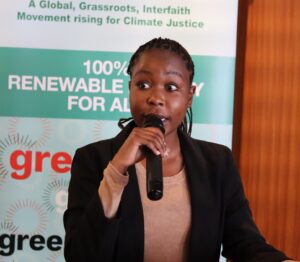
She told participants that the FFNPT is built on enabling a global just transition, preventing the proliferation of coal, oil, and gas by ending all new exploration and production. It also seeks the phasing-out of existing production of fossil fuels in line with the 1.5-degree Centigrade global climate goal.
“We believe that the FFNPT should be implemented in a manner that is fair and equitable, where wealthy nations with the capacity and historical responsibility for emissions transition fastest,” said Ms. Kitisya.
Ms. Sujarta Kotamraju of the Hindu Council of Kenya said it was important for Kenyans to embrace the earth as a wholesome and sacred entity that is instrumental in human health, sustenance, happiness, and survival.
“If you treat the earth well, it will reciprocate the action. The reverse is also true,” said Ms. Kotamraju.
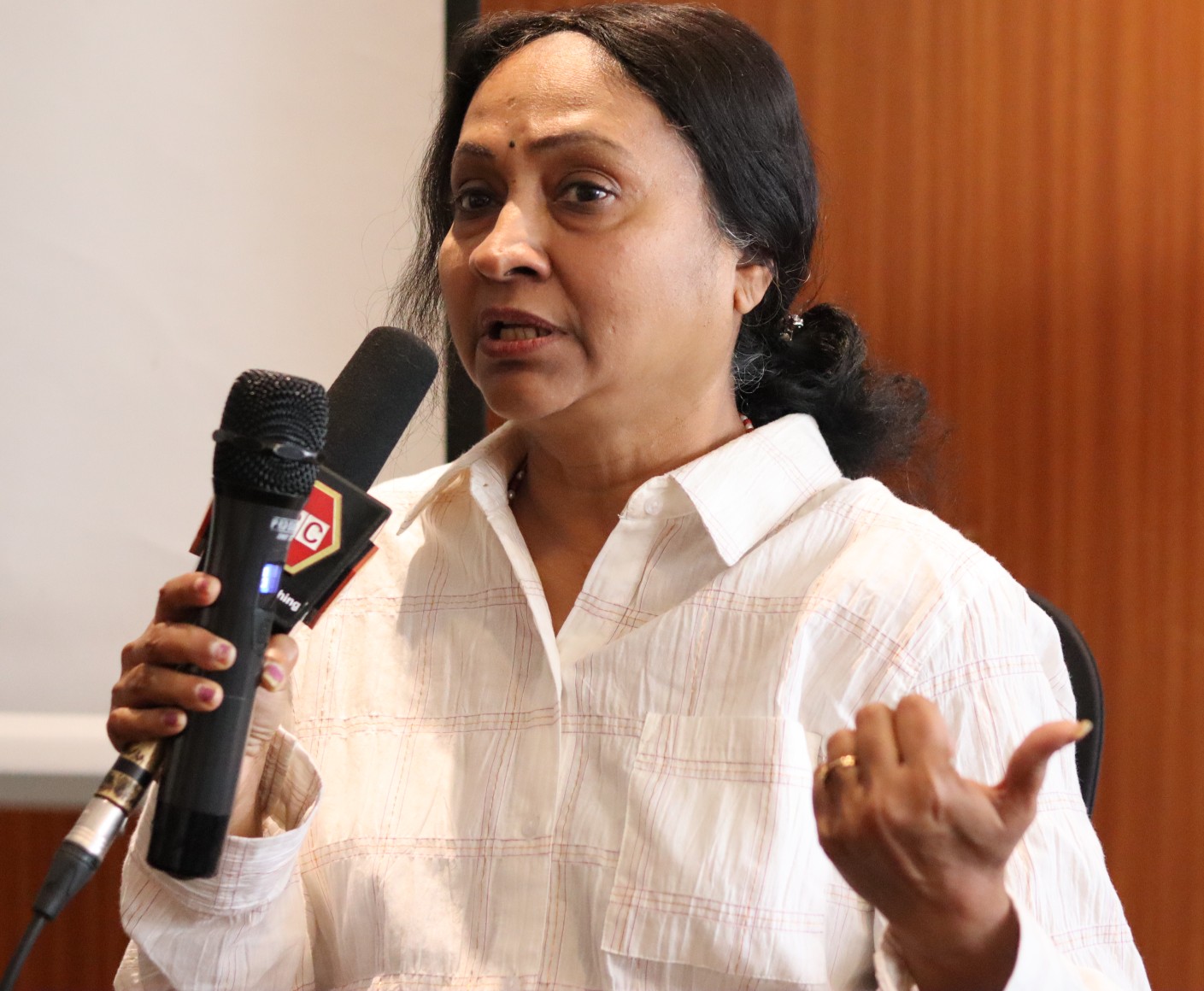
Reflecting on the pollution in River Nyando that flows in his home region, Rev Elias Ogola of the Presbyterian Church said it was no longer possible to ignore the adverse effects of environmental degradation.
“Since humans started dumping waste and polluting the river, the fish have disappeared and we can no longer drink its water,” said the reverend.
Pr. Timothy Guto of the Seventh Day Adventist Church said it was time for religious leaders to guide their thoughts and lead the actions of the faithful to save the environment as faithful stewards.
“Initially, matters of the environment were left to the government. But our people suffer, and it is clear that among other ways to help them is to enlighten them on the opportunities in a well-kept environment,” said Pr Gutto.
Economic and Ecological Justice Program Executive Director Dr. Tinashe Gumbo urged the world’s nations to put politics aside and deliver justice to those affected through the COP27 deliberations.
“As we go into COP27, let us remember it is all about justice. As faith leaders, we believe in the need for justice. We must push those behind the injustice causing the climate crisis to pay. The politics must be put aside because we all have to live,” he said.
Collins Oduor of Dorcas Aid said the time had come to reflect on loss and damage, and the role of the faiths in the process.
“We must look at local examples and be honest about the urgency of action needed to save lives. What other science do you need when drought-stricken people and animals in Kilifi, Marsabit, and Garissa are dying, as others get swept by flooding in Uganda, South Africa, and Nigeria?” he posed.
“Faith at work demands that we do what is morally right,” added the activist.
On her part, Sabina Nganga from the Women of Faith Network appealed to President William Ruto to reconsider the move to re-establish the shamba system that will see Kenya’s natural forests occupied by selected farmers.
“Women support calls against any person or organization that destroys the environment as it is the only thing we can leave our children and their children. Mr. President, this is why we must not return to the shamba system. As women, let us start small and start now to save the environment,” said Ms. Nganga.

